-
 Bitcoin
Bitcoin $102,949.6253
3.38% -
 Ethereum
Ethereum $2,338.4946
19.99% -
 Tether USDt
Tether USDt $0.9999
-0.02% -
 XRP
XRP $2.3968
8.64% -
 BNB
BNB $637.0250
3.78% -
 USDC
USDC $1.0000
-0.01% -
 Dogecoin
Dogecoin $0.2072
13.02% -
 Cardano
Cardano $0.7924
10.43% -
 TRON
TRON $0.2636
5.05% -
 Sui
Sui $3.9829
6.14% -
 Chainlink
Chainlink $16.2479
9.39% -
 Avalanche
Avalanche $23.5942
12.80% -
 Stellar
Stellar $0.3007
9.90% -
 Shiba Inu
Shiba Inu $0.0...01519
13.38% -
 Hedera
Hedera $0.2018
8.61% -
 Hyperliquid
Hyperliquid $25.2936
17.11% -
 Bitcoin Cash
Bitcoin Cash $414.7416
0.06% -
 Toncoin
Toncoin $3.2860
5.54% -
 UNUS SED LEO
UNUS SED LEO $8.7364
-0.74% -
 Litecoin
Litecoin $98.2278
6.74% -
 Polkadot
Polkadot $4.6909
10.44% -
 Monero
Monero $303.6835
1.99% -
 Dai
Dai $1.0000
-0.03% -
 Pepe
Pepe $0.0...01270
39.94% -
 Bitget Token
Bitget Token $4.4987
3.48% -
 Pi
Pi $0.7410
19.57% -
 Ethena USDe
Ethena USDe $1.0002
-0.01% -
 Uniswap
Uniswap $6.3515
21.66% -
 Bittensor
Bittensor $430.2143
7.45% -
 Aptos
Aptos $5.6979
11.74%
What can Centrifuge (CFG) coins be used for?
CFG coins are used in the Centrifuge protocol to pay transaction fees, participate in the network through staking, and govern the protocol's development.
Dec 14, 2024 at 08:23 pm
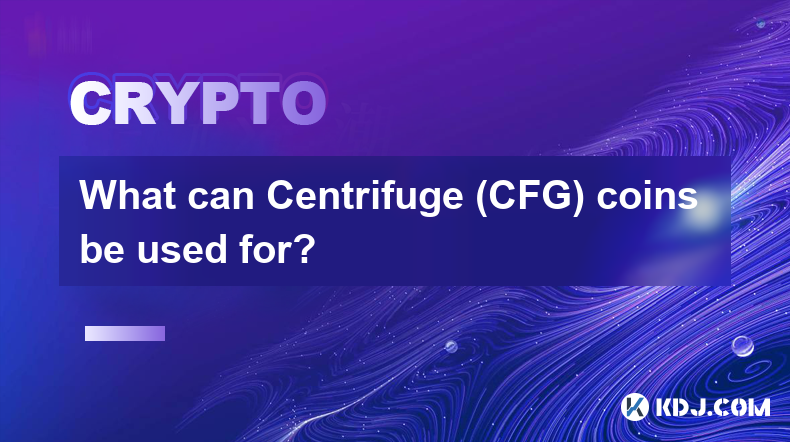
What can Centrifuge (CFG) coins be used for?
Introduction
Centrifuge (CFG) is a decentralized protocol that enables the tokenization of real-world assets. This allows these assets to be traded and financed more efficiently on the blockchain. CFG coins are the native cryptocurrency of the Centrifuge protocol and are used to:
- Pay for transaction fees
- Stake to participate in the network
- Govern the protocol
Steps
1. Pay for transaction fees
Transaction fees are required to use the Centrifuge protocol. These fees are used to compensate the network participants who process and validate transactions. The amount of the transaction fee is determined by the size and complexity of the transaction you want to execute. Users can pay transaction fees using CFG or any other cryptocurrency supported by the Centrifuge protocol.
2. Stake to participate in the network
Users can stake their CFG tokens to participate in the Centrifuge network. This allows them to earn rewards for helping to process and validate transactions and secure the network. The amount of rewards users earn is based on the amount of CFG they stake and the length of time they stake it.
3. Govern the protocol
CFG holders have the right to participate in the governance of the Centrifuge protocol. They can propose new features and changes to the protocol, and they can vote on proposals submitted by other members of the community. The decisions made by CFG holders will help to shape the future of the Centrifuge protocol.
Disclaimer:info@kdj.com
The information provided is not trading advice. kdj.com does not assume any responsibility for any investments made based on the information provided in this article. Cryptocurrencies are highly volatile and it is highly recommended that you invest with caution after thorough research!
If you believe that the content used on this website infringes your copyright, please contact us immediately (info@kdj.com) and we will delete it promptly.
- Rumble to Launch Bitcoin and Stablecoin Wallet in Q3 2025
- 2025-05-09 20:10:12
- Bitcoin Solaris (BTC-S) Offers Hard-Capped Digital Scarcity and Modernized Bitcoin (BTC) Functionality
- 2025-05-09 20:10:12
- Still Worth Buying Kaspa? KAS Price Outperformed by Meme Coins
- 2025-05-09 20:05:23
- Ethena [ENA] Has Been Trading Within a Descending Channel Since March
- 2025-05-09 20:05:23
- Bitcoin (BTC) Reclaims $100,000 as Spot ETFs Log Continued Inflows
- 2025-05-09 20:05:22
- Bitcoin price extends its rally, pushing past the $100000 mark to reach nearly $104000
- 2025-05-09 20:05:22
Related knowledge
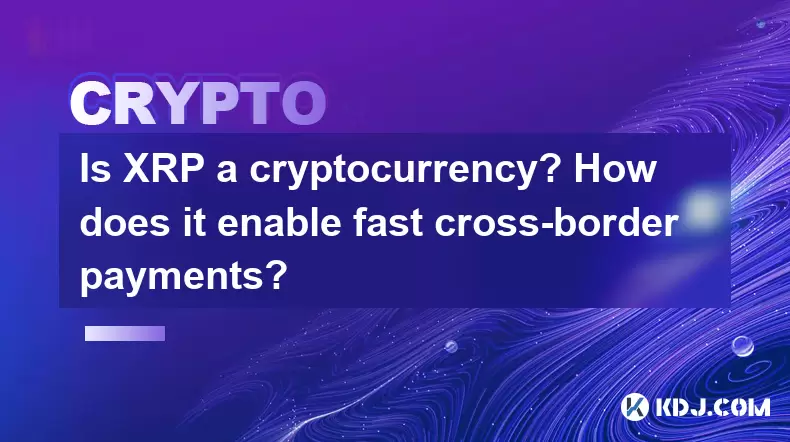
Is XRP a cryptocurrency? How does it enable fast cross-border payments?
May 09,2025 at 04:21pm
Is XRP a cryptocurrency? How does it enable fast cross-border payments? XRP is indeed a cryptocurrency, and it plays a significant role in facilitating fast cross-border payments. Created by Ripple Labs, XRP is designed to serve as a bridge currency in international transactions, enabling quick and cost-effective transfers between different currencies. ...
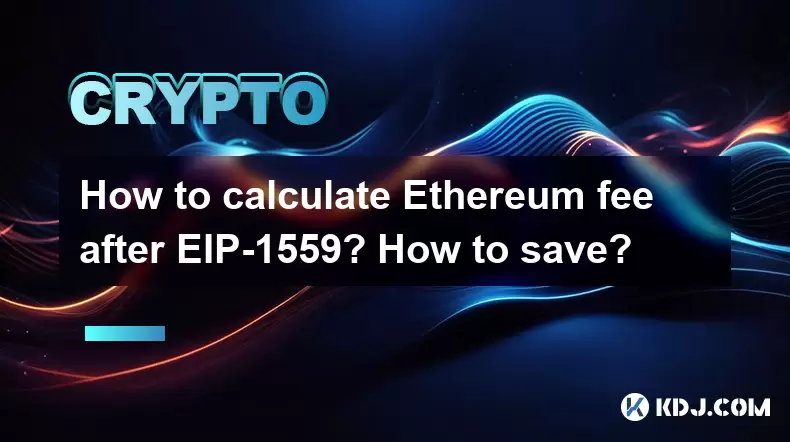
How to calculate Ethereum fee after EIP-1559? How to save?
May 09,2025 at 08:01am
The introduction of EIP-1559 in August 2021 brought significant changes to the Ethereum network's fee structure, revolutionizing how users interact with transaction costs. This article will delve into the specifics of how to calculate Ethereum fees post-EIP-1559 and offer strategies to save on these fees. Understanding EIP-1559 and its ComponentsEIP-155...
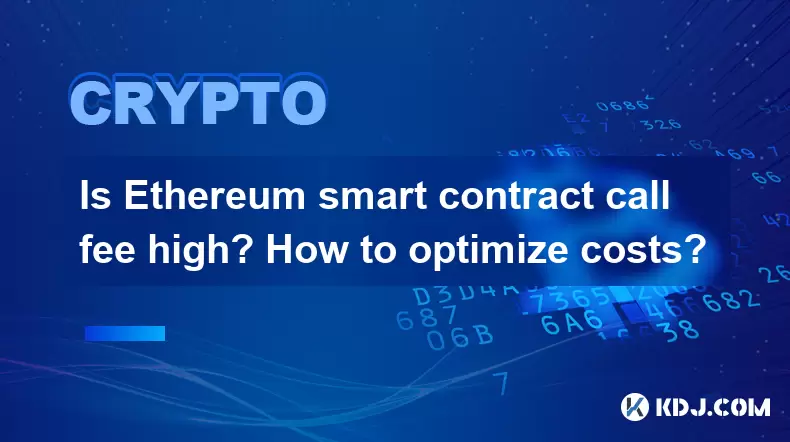
Is Ethereum smart contract call fee high? How to optimize costs?
May 08,2025 at 09:35am
Is Ethereum Smart Contract Call Fee High? How to Optimize Costs? The world of Ethereum smart contracts has revolutionized the way we think about decentralized applications and blockchain technology. However, one of the most frequently discussed topics within this realm is the cost associated with executing smart contract calls. In this article, we will ...
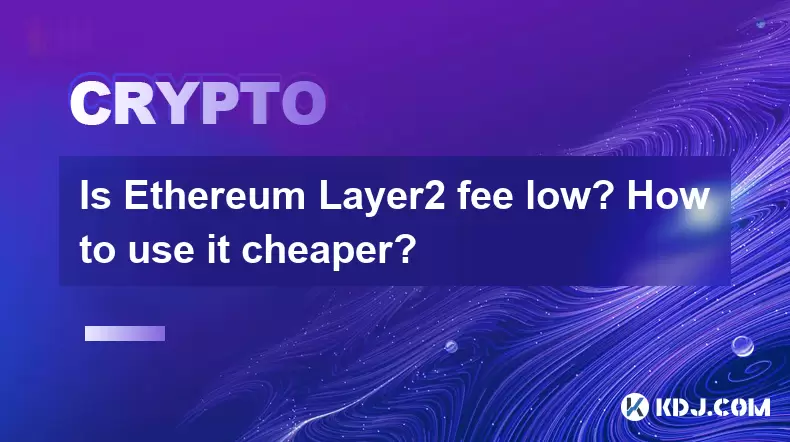
Is Ethereum Layer2 fee low? How to use it cheaper?
May 08,2025 at 03:56am
The question of whether Ethereum Layer 2 solutions offer lower fees and how to use them more economically is a topic of great interest within the cryptocurrency community. Ethereum's Layer 2 solutions have been developed to address the high transaction fees and scalability issues associated with the main Ethereum network. In this article, we will delve ...

How to calculate Ethereum network fee? How to reduce transaction costs?
May 08,2025 at 02:15am
Understanding and managing Ethereum network fees is crucial for anyone involved in transactions on the Ethereum blockchain. The network fee, also known as gas fee, is the amount of Ether (ETH) required to successfully conduct a transaction or execute a smart contract on the Ethereum network. Calculating these fees and finding ways to reduce them can sig...
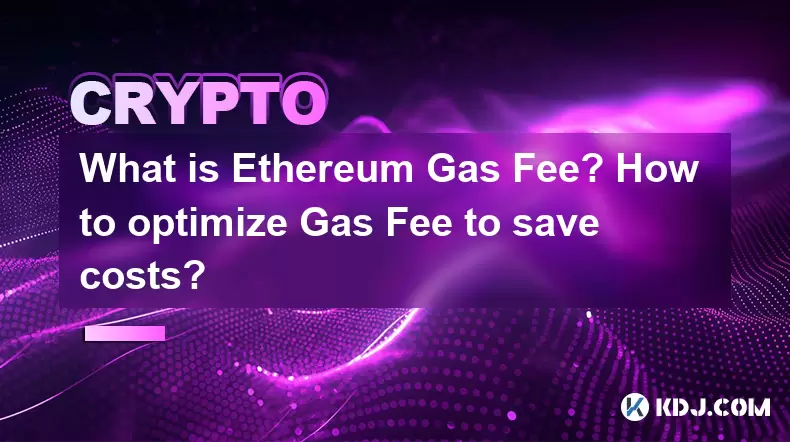
What is Ethereum Gas Fee? How to optimize Gas Fee to save costs?
May 08,2025 at 03:43am
Ethereum gas fees are a crucial aspect of interacting with the Ethereum blockchain. Understanding and optimizing these fees can significantly impact the cost-effectiveness of transactions and smart contract interactions. In this article, we will delve into what Ethereum gas fees are, how they are calculated, and provide detailed strategies for optimizin...

Is XRP a cryptocurrency? How does it enable fast cross-border payments?
May 09,2025 at 04:21pm
Is XRP a cryptocurrency? How does it enable fast cross-border payments? XRP is indeed a cryptocurrency, and it plays a significant role in facilitating fast cross-border payments. Created by Ripple Labs, XRP is designed to serve as a bridge currency in international transactions, enabling quick and cost-effective transfers between different currencies. ...

How to calculate Ethereum fee after EIP-1559? How to save?
May 09,2025 at 08:01am
The introduction of EIP-1559 in August 2021 brought significant changes to the Ethereum network's fee structure, revolutionizing how users interact with transaction costs. This article will delve into the specifics of how to calculate Ethereum fees post-EIP-1559 and offer strategies to save on these fees. Understanding EIP-1559 and its ComponentsEIP-155...

Is Ethereum smart contract call fee high? How to optimize costs?
May 08,2025 at 09:35am
Is Ethereum Smart Contract Call Fee High? How to Optimize Costs? The world of Ethereum smart contracts has revolutionized the way we think about decentralized applications and blockchain technology. However, one of the most frequently discussed topics within this realm is the cost associated with executing smart contract calls. In this article, we will ...

Is Ethereum Layer2 fee low? How to use it cheaper?
May 08,2025 at 03:56am
The question of whether Ethereum Layer 2 solutions offer lower fees and how to use them more economically is a topic of great interest within the cryptocurrency community. Ethereum's Layer 2 solutions have been developed to address the high transaction fees and scalability issues associated with the main Ethereum network. In this article, we will delve ...

How to calculate Ethereum network fee? How to reduce transaction costs?
May 08,2025 at 02:15am
Understanding and managing Ethereum network fees is crucial for anyone involved in transactions on the Ethereum blockchain. The network fee, also known as gas fee, is the amount of Ether (ETH) required to successfully conduct a transaction or execute a smart contract on the Ethereum network. Calculating these fees and finding ways to reduce them can sig...

What is Ethereum Gas Fee? How to optimize Gas Fee to save costs?
May 08,2025 at 03:43am
Ethereum gas fees are a crucial aspect of interacting with the Ethereum blockchain. Understanding and optimizing these fees can significantly impact the cost-effectiveness of transactions and smart contract interactions. In this article, we will delve into what Ethereum gas fees are, how they are calculated, and provide detailed strategies for optimizin...
See all articles





















































































